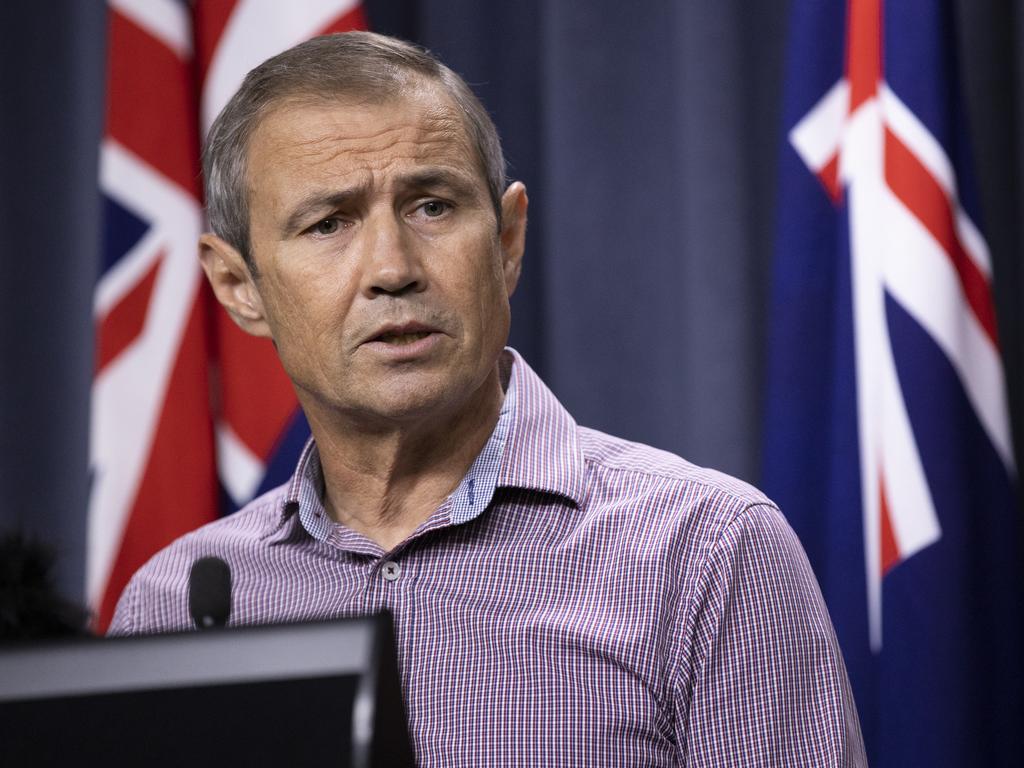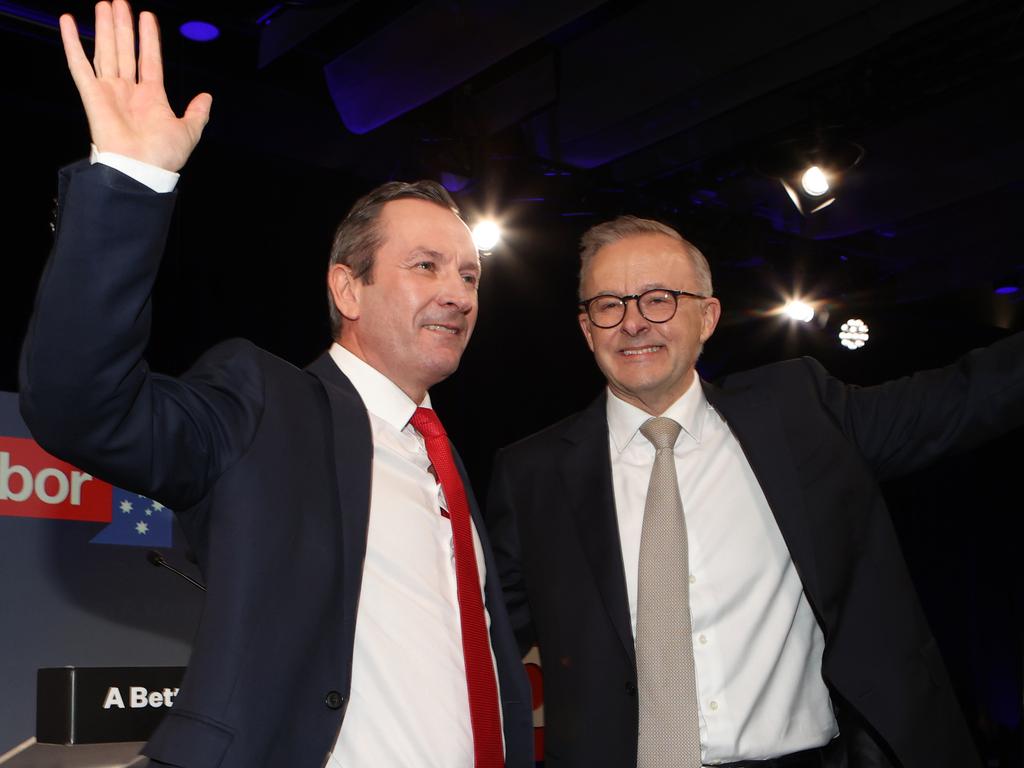How Mark McGowan presided over a political revolution


As West Australian Premier from 2017, McGowan became the ultimate symbol of the transforming impact of the Covid pandemic on our politics – under its state of emergency McGowan shut the WA border in March 2020 determined to stop the pandemic invading his state. It was a masterstroke.
McGowan fractured the federation, became supreme ruler of the west, arch protector of its people, and exploited the deepest instincts of Western Australia’s insularity amid riches.
Methodical in approach, calm in delivery, aggressive in content, McGowan proved that the pandemic had empowered premiers, had frightened electorates into allowing premiers to exercise autocratic powers and represented the subjugation of prime ministerial authority before assertive premiers, a phenomenon not seen since before World War II.

McGowan presided over a briefly passing political revolution. It resounded from Perth to Canberra. He had a dual identity, more than any other premier, as the untouched ruler of his state but as a national figure locking WA from the rest of the country – with Scott Morrison cast as the antagonist in McGowan’s irresistible populist protectionism.
It took the Morrison government too long to realise it was doomed in this contest. McGowan became hero and saviour. As the eastern states struggled with mounting Covid cases and plunged into lockdowns, the good citizens of WA stayed free, thanking their Premier, who swore daily he would run a zero tolerance policy against Covid and whose border closures showed he was ruthless enough to enforce it.
While the pandemic made McGowan, he had established the foundations for success before Covid. Entering state parliament in 1996 McGowan, an import from the east, had plenty of time to absorb the culture of the West and its idiosyncrasies.
He saw Perth was a small democratic entity yet controlling one of the world’s richest mining and energy provinces. He backed the resources barons; formed an alliance with WA media supremo Kerry Stokes; thrived with support from the local newspaper monopoly, The West Australian; saw the budget turn into surpluses; promoted modest social and environmental reform; presided over some of the highest per capita income rates in the world; and projected authority.

Ironically, McGowan and Morrison had much in common, seeing themselves as tough, pragmatic leaders able to deliver. Witness the Morrison-McGowan 2018 deal on the GST distribution that guaranteed the west would not receive less than 70c in the dollar in GST receipts. It has turned into a goldmine, in a state used to gold.
The irony is beyond belief. Iron ore prices were expected to fall further but instead they boomed. Morrison cut the west a special financial deal but saw the Liberals pummelled politically.
McGowan ever since has shot down protests from the east by exploiting WA’s deepest psychological obsessions – that Australia’s economy floats on the west’s performance and ungrateful eastern states have no appreciation for the favours the west has done them.
Last year McGowan lashed former NSW treasurer Matt Kean, saying of the latter’s state: “They sold off all their assets, they’ve blown their deficits, they’ve been financially irresponsible.” From pandemics to budgets to China – it’s WA, according to McGowan, that gets it right.
On China, McGowan wasn’t interested in Morrison’s security strategy. He attacked Canberra, saying it was wrong to single out China over trade rules. Get the message: it’s Canberra’s fault, not Beijing’s.
Along with Morrison, former NSW premier Gladys Berejiklian was a special target. He slammed Berejiklian when she signalled NSW might open its economy at a 50 per cent vaccination rate.
“By allowing the virus to run rampant throughout NSW, they’re risking the lives of their citizens and they’re risking everyone else,” McGowan thundered.
He said NSW didn’t have the “backbone” (not like him) and the only task was to “crush and kill” the virus. He kept demanding NSW go into snap lockdowns.
When Morrison and Josh Frydenberg introduced the JobKeeper stimulus, McGowan famously greeted Morrison with: “Hello comrade!” and said he was emulating Ben Chifley.
Morrison created the national cabinet to co-ordinate the pandemic response. But there were three consequences he did not foresee. The premiers were turned into national figures. They ran their own health policies regardless of national cabinet. And Morrison saw his political authority diminished.

In the end, the premiers were rewarded by the public for their tough stands while Morrison was blamed for what went wrong. Australia finished with an impressive health and economic performance against Covid but Morrison lost the politics.
Albanese had the best of all worlds – with the pandemic centrestage, the premiers helped to take down Morrison.
Morrison’s worst mistake with the west was to join Clive Palmer’s High Court action against the closed border. As prime minister, he felt an obligation to defend the integrity of the federation. Weeks later Morrison withdrew, but McGowan and Albanese had their case against him. It would prove to be lethal: that Morrison had wanted to demolish the west’s protection against Covid.
McGowan created a “safety during wartime” mentality in the west. People would speak of him with reverence. The mood was extraordinary; he was utterly believed. Resentment towards NSW was palpable. Morrison was cast as the enemy of the west.
A minority of people and business, deeply hurt by his policies, were bitter. But they were outvoted and outmuscled. McGowan broke all polling records. In 2021 he reduced an already weak Liberal Party to two seats in the state parliament. If he had stayed premier, another huge win was assured.
McGowan was fundamental to Albanese’s 2022 victory. Labor decided to run a stand-alone WA campaign theme. Albanese launched his formal campaign in the west. There were two elections in Australia in May last year – one in the west and the other in the rest of the country.
The swing against the Coalition in the west was 10.4 per cent while the anti-Coalition swing in NSW, Victoria and Queensland averaged 3.1 per cent. Labor won 10 seats at the election and four of those were in the west. Of the 15 seats in the west, Labor now holds nine and the Liberals five, with one independent. The ALP report on election 2022 said the most significant factor in the result was the unpopularity of Morrison and his government.
That nationwide mood was at its most damaging in the west – because of McGowan.
Given that Labor won 77 seats in the 151-strong House of Representatives, it was McGowan who delivered Albanese majority as distinct from minority government. That is surely an unprecedented result for any ALP premier in our history.
McGowan has displayed the wisdom and humility to retire at his peak. It is a rare event and testifies to personal character. To an extent, his confessed exhaustion is a function of the pandemic. It is claiming its victims, whether they were winners or losers.







Mark McGowan was a long, slow burn politician whose career culminated in fireworks. He virtually eliminated the Liberal Party at the 2021 state election, delivered majority government to Anthony Albanese last year and brought provincialism in the west to a zenith not seen for decades.